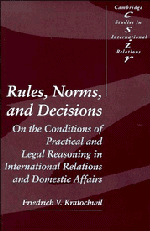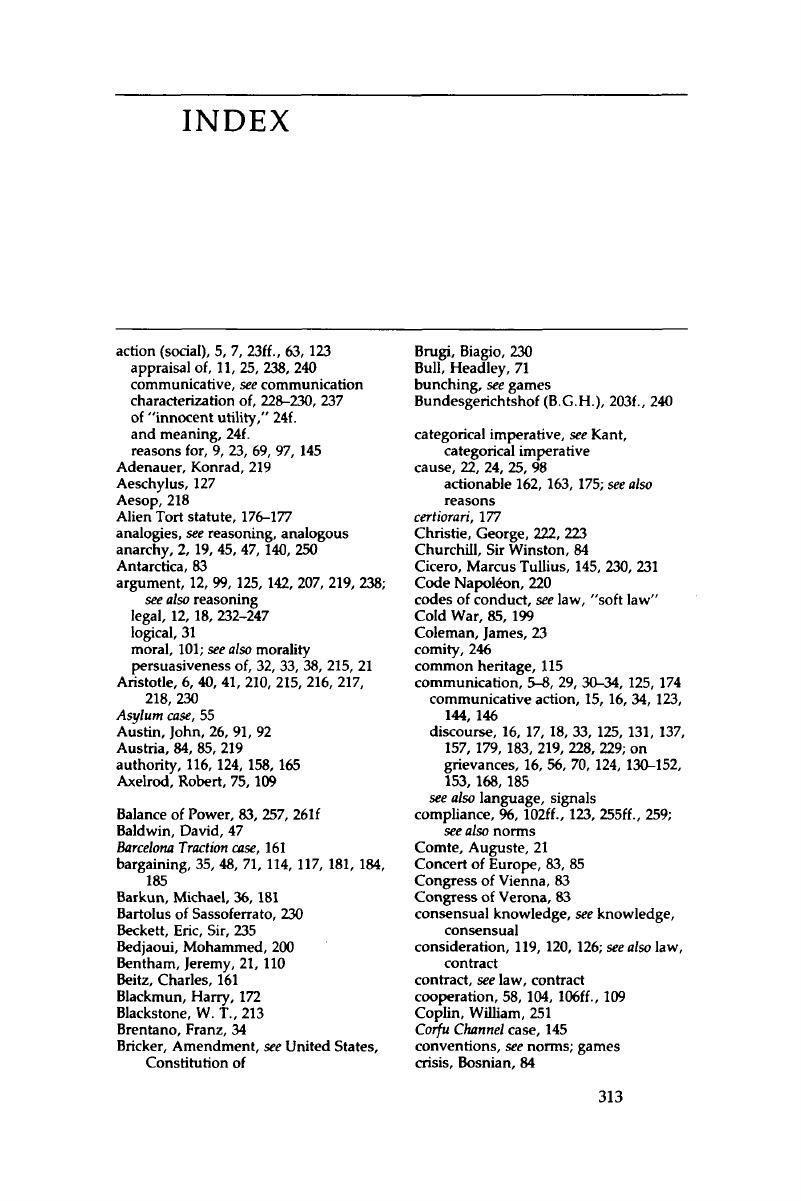 Rules, Norms, and Decisions
Rules, Norms, and Decisions Book contents
- Frontmatter
- Contents
- Acknowledgements
- Introduction: The resort to norms
- 1 Rules, norms, and actions: laying the conceptual foundations
- 2 Anarchy and the state of nature: the issue of regimes in international relations
- 3 The emergence and types of norms
- 4 The force of prescriptions: Hume, Hobbes, Durkheim, and Freud on compliance with norms
- 5 The discourse on grievances: Pufendorf and the “laws of nature” as constitutive principles for the discursive settlement of disputes
- 6 The notion of “right”
- 7 The question of “law”
- 8 The path of legal arguments
- Conclusion: The international legal order, international systems, and the comparative analysis of the practice of states
- Notes
- Index
- Frontmatter
- Contents
- Acknowledgements
- Introduction: The resort to norms
- 1 Rules, norms, and actions: laying the conceptual foundations
- 2 Anarchy and the state of nature: the issue of regimes in international relations
- 3 The emergence and types of norms
- 4 The force of prescriptions: Hume, Hobbes, Durkheim, and Freud on compliance with norms
- 5 The discourse on grievances: Pufendorf and the “laws of nature” as constitutive principles for the discursive settlement of disputes
- 6 The notion of “right”
- 7 The question of “law”
- 8 The path of legal arguments
- Conclusion: The international legal order, international systems, and the comparative analysis of the practice of states
- Notes
- Index
Summary

- Type
- Chapter
- Information
- Rules, Norms, and DecisionsOn the Conditions of Practical and Legal Reasoning in International Relations and Domestic Affairs, pp. 313 - 317Publisher: Cambridge University PressPrint publication year: 1989
